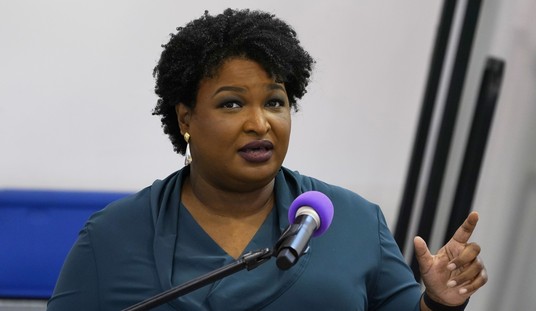Kibosh may be more definitive than what’s going on here. It’s not that I don’t think these new innovations deserve some sort of look-see from regulators. It’s just that the process for a look-see from federal regulators is likely to be such an interminable purgatory that slows down new forms of transportation while, ironically, the feds are funding all kinds of very old transportation in the form of light rails no one will ride.
In the case of self-driving car technology we’re falling behind the more innovation friendly Europe. Shame:
Federal regulators are also putting the brakes on self-driving cars, which are closely related to the Uber innovation—enabling riders to order a car service using their smartphone app. If fast-moving technology hadn’t collided with slow-moving regulators, this might have been the last summer you’d have to drive your own car.
Self-driving technology is reaching the limits of what U.S. regulators will allow. The 2014 Mercedes Benz S-Class sedan uses digital technology to be the first car most of the way to being self-driving. The S-Class combines active cruise control, automatic braking and lane-keeping technologies to offer what an industry analyst calls “70% autonomous driving.” The car steers, accelerates and brakes on its own in congested traffic up to 40 miles an hour. On the highway, it uses numerous cameras and radars to remain centered in its lane at a safe distance from the car ahead, up to 120 miles an hour.
But U.S. regulators won’t let car manufacturers go much beyond what Mercedes now offers. That means car makers can’t roll out technologies they already have, and auto makers in Europe, which has fewer regulations limiting technology, have surpassed their U.S. competitors.
Another kind of start-up allows small-plane pilots to act like Uber drivers, pooling the high costs of plane ownership and travel with passengers who need or want to fly. No longer, after an August letter from the FAA refused to confirm the legality of such arrangements:
Steve Lewis, co-founder and CEO of Cambridge-based airplane-sharing startup AirPooler, said a letter that threatens to jeopardize AirPooler’s business model is a sign of the Federal Aviation Administration ‘crushing innovation.’
The convoluted Aug. 13 letter sent from the FAA to AirPooler says pilots are banned from effectively acting like Uber drivers.
Unsurprisingly, Airpooler says they’re the victim of a fickle FAA:
AirPooler, a 2014 startup finalist in the MassChallenge startup accelerator program, offers a website where pilots of small planes can share expenses of flights with aviation enthusiast-passengers. The model is similar to Northeastern University-born plane-sharing website Flytenow, which could also be in jeopardy after the FAA memo.
The letter was sent to AirPooler after the startup had requested the FAA confirm the legality of its plane-sharing business model.
In the spring, AirPooler had solicited help from the FAA’s former assistant chief counsel to ensure that the startup’s business model was following all the rules. To the company’s knowledge, the service was legal under FAA regulations.
However, the FAA now seems to be “changing its mind,” Lewis said, though the letter did not explicitly say the company should cease operations.








Join the conversation as a VIP Member